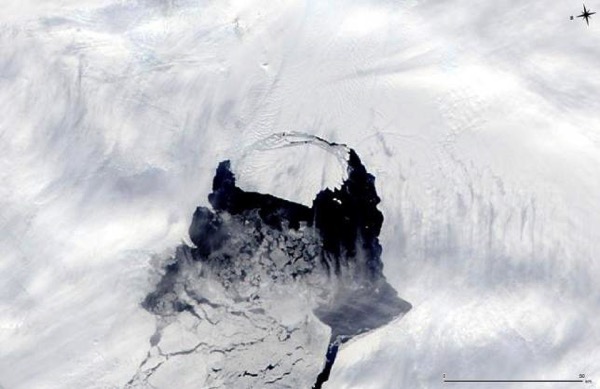Antarctic icebergs have surprise role in slowing warming
The biggest icebergs breaking off Antarctica unexpectedly help to slow global warming as they melt away into the chill Southern Ocean, scientists said on Monday.
The rare Manhattan-sized icebergs, which may become more frequent in coming decades because of climate change, release a vast trail of iron and other nutrients that act as fertilisers for algae and other tiny plant-like organisms in the ocean.
These extract carbon dioxide from the atmosphere as they grow, a natural ally for human efforts to limit the pace of climate change blamed on man-made greenhouse gas emissions.
Ocean blooms in the wake of giant icebergs off Antarctica absorbed 10 to 40 million tonnes of carbon a year, the study estimated, roughly equivalent to annual man-made greenhouse gas emissions of countries such as Sweden or New Zealand.
The scientists studied satellite images of 17 giant icebergs off Antarctica from 2003-2013 and found that algae could turn the water greener for hundreds of kms (miles) around the icebergs, with nutrients spread by winds and currents.
There are typically 30 giant icebergs floating off Antarctica at any one time - they can linger for years. The study said the giant icebergs had an outsized impact in promoting ocean fertilization when compared with small icebergs.

No comments:
Post a Comment